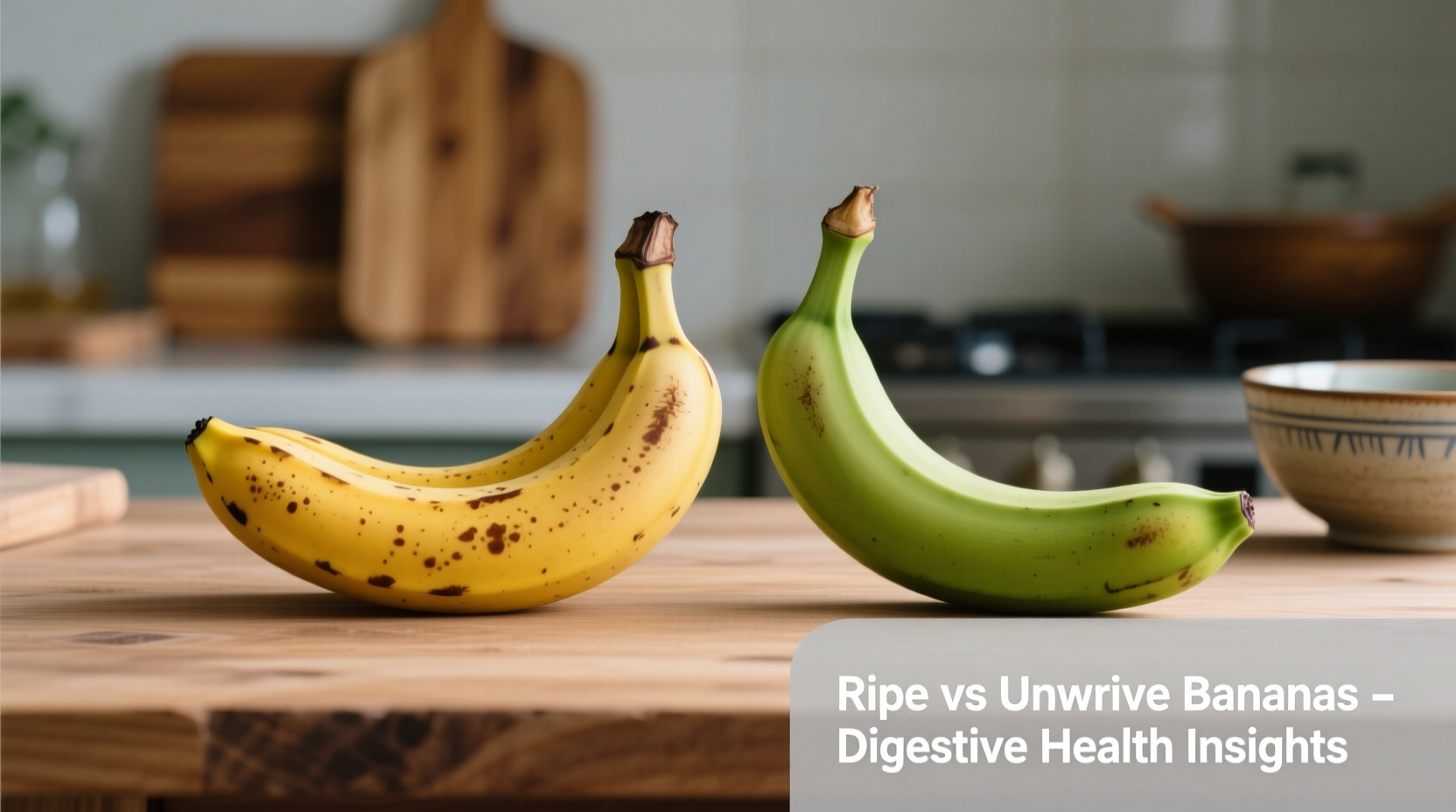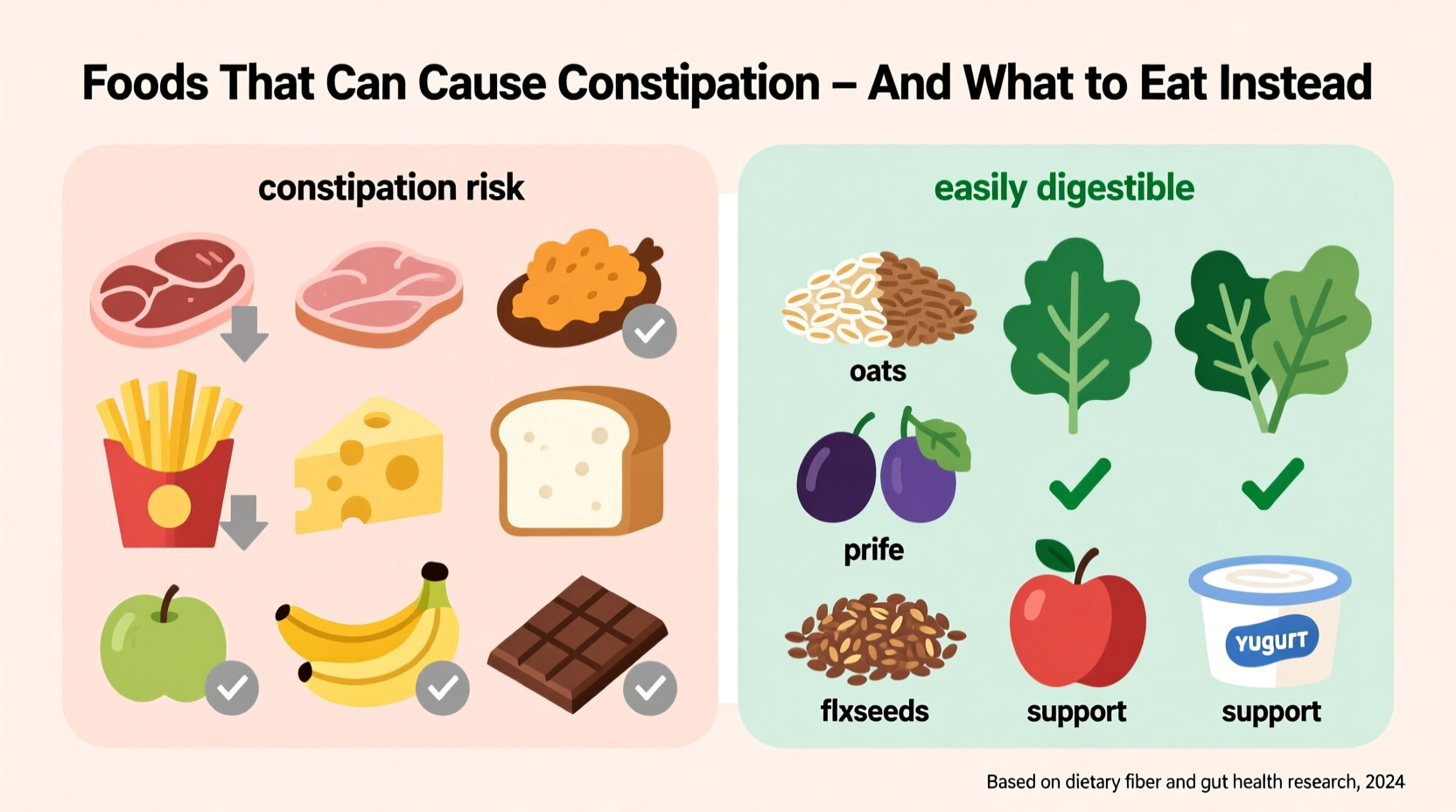If you're wondering what foods constipate you, the primary culprits are dairy products, processed foods, unripe bananas, red meat, and fried foods. These items can slow digestion due to low fiber content, high fat levels, or specific compounds that affect gut motility. Understanding which foods trigger constipation helps maintain regular bowel movements and digestive health.
Constipation affects nearly 16% of adults globally, with dietary choices playing a significant role in both causing and preventing this uncomfortable condition. While fiber-rich foods promote regularity, certain dietary patterns can dramatically slow your digestive system. Let's explore exactly which foods constipate you and why they have this effect on your body.
Why Certain Foods Trigger Constipation
Your digestive system relies on a delicate balance of fiber, fluids, and muscle contractions to move waste efficiently. When you consume foods low in fiber but high in fat or certain compounds, they can slow intestinal movement. The colon absorbs more water from stool when digestion slows, resulting in hard, difficult-to-pass bowel movements.
According to the National Institute of Diabetes and Digestive and Kidney Diseases, "Dietary factors significantly influence bowel function, with inadequate fiber intake being the most common dietary cause of constipation." Understanding the specific foods that constipate you allows for targeted dietary adjustments.
Top 5 Foods That Constipate You (With Scientific Evidence)
1. Dairy Products
Casein, a protein in dairy, can slow digestion for some people, particularly those with lactose sensitivity. A study published in Nutrients found that excessive dairy consumption correlated with increased constipation symptoms in children and adults with dairy sensitivity.
Who's most affected: Individuals with lactose intolerance, children, and those with irritable bowel syndrome (IBS) experience more pronounced effects. Approximately 68% of the global population has some degree of lactose intolerance.
2. Processed and Fast Foods
White bread, pastries, chips, and other processed items contain minimal fiber but high levels of refined carbohydrates and fats. The CDC reports that Americans consume only about 15 grams of fiber daily—less than half the recommended amount—which contributes significantly to constipation issues.
Key insight: Just one fast food meal can contain less than 2 grams of fiber, while providing excessive saturated fats that slow gastric emptying.
3. Unripe Bananas
While ripe bananas help prevent constipation, unripe bananas contain high levels of resistant starch and tannins that can actually cause constipation. The World Journal of Gastroenterology notes that "tannins in unripe bananas decrease intestinal motility and increase water absorption from stool."

4. Red Meat
Frequent consumption of red meat correlates with slower digestion due to its high fat content and lack of fiber. Research in the Journal of Gastroenterology and Hepatology indicates that diets high in red meat and low in plant-based foods significantly increase constipation risk.
Practical tip: Limit red meat to 1-2 servings per week and pair any meat consumption with high-fiber vegetables to maintain digestive balance.
5. Fried Foods
High-fat fried foods delay gastric emptying, giving your colon more time to absorb water from stool. The Mayo Clinic specifically identifies fried foods as constipation triggers because they "slow the movement of food through the digestive tract."
| Food Category | Constipation Risk Level | Typical Trigger Amount | At-Risk Populations |
|---|---|---|---|
| Dairy products | High | 2+ servings daily | Lactose intolerant individuals, children |
| Processed foods | High | 1+ meals daily | All adults, elderly |
| Unripe bananas | Moderate | 2+ daily | Children, IBS sufferers |
| Red meat | Moderate | 3+ servings weekly | Sedentary individuals |
| Fried foods | Moderate-High | Regular consumption | All populations |
How Long Does It Take for Constipating Foods to Affect You?
Understanding the timeline helps identify which foods constipate you:
- Immediate effect (1-3 hours): High-fat fried foods begin slowing gastric emptying almost immediately
- Short-term (6-12 hours): Dairy products affect sensitive individuals within half a day
- Medium-term (1-2 days): Consistent low-fiber diet shows effects within 24-48 hours
- Long-term (3+ days): Chronic consumption leads to persistent constipation requiring medical intervention
Practical Strategies to Prevent Food-Induced Constipation
Identify Your Personal Triggers
Keep a food and symptom diary for 2 weeks to pinpoint which foods constipate you specifically. Note:
- What you ate and when
- Bowel movement frequency and consistency
- Any abdominal discomfort
Smart Substitutions for Constipation-Prone Diets
Replace constipation-causing foods with these alternatives:
- Instead of dairy: Try almond milk, coconut yogurt, or lactose-free products
- Instead of processed carbs: Choose whole grains like oats, quinoa, and brown rice
- Instead of unripe bananas: Opt for ripe bananas, pears, or prunes
- Instead of red meat: Substitute with lean poultry, fish, or plant-based proteins
- Instead of fried foods: Bake, grill, or air-fry with minimal oil
Hydration and Timing Matters
When consuming potentially constipating foods, increase your water intake by 20-30% and add fiber gradually. The National Academies of Sciences, Engineering, and Medicine recommends 2.7-3.7 liters of water daily depending on gender and activity level.
When to Consult a Healthcare Professional
While dietary changes often resolve constipation, seek medical advice if you experience:
- Constipation lasting more than 3 weeks despite dietary changes
- Severe abdominal pain or bloating
- Blood in stool
- Unexplained weight loss
- Constipation alternating with diarrhea
These symptoms could indicate underlying conditions like irritable bowel syndrome, hypothyroidism, or other medical issues requiring professional treatment.
Building a Constipation-Prevention Diet Plan
Create a balanced eating pattern that minimizes constipation risk:
- Start your day with warm water and lemon to stimulate digestion
- Include at least 25-30 grams of fiber daily from diverse sources
- Pair potentially constipating foods with high-fiber accompaniments
- Stay consistently hydrated throughout the day
- Consider probiotic-rich foods like kefir or sauerkraut to support gut health
Remember that individual responses vary—what constipates one person might not affect another. The key is understanding your body's unique responses to different foods.











 浙公网安备
33010002000092号
浙公网安备
33010002000092号 浙B2-20120091-4
浙B2-20120091-4